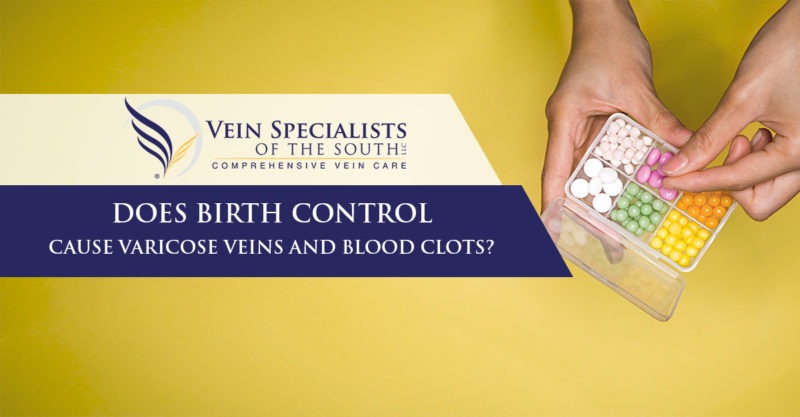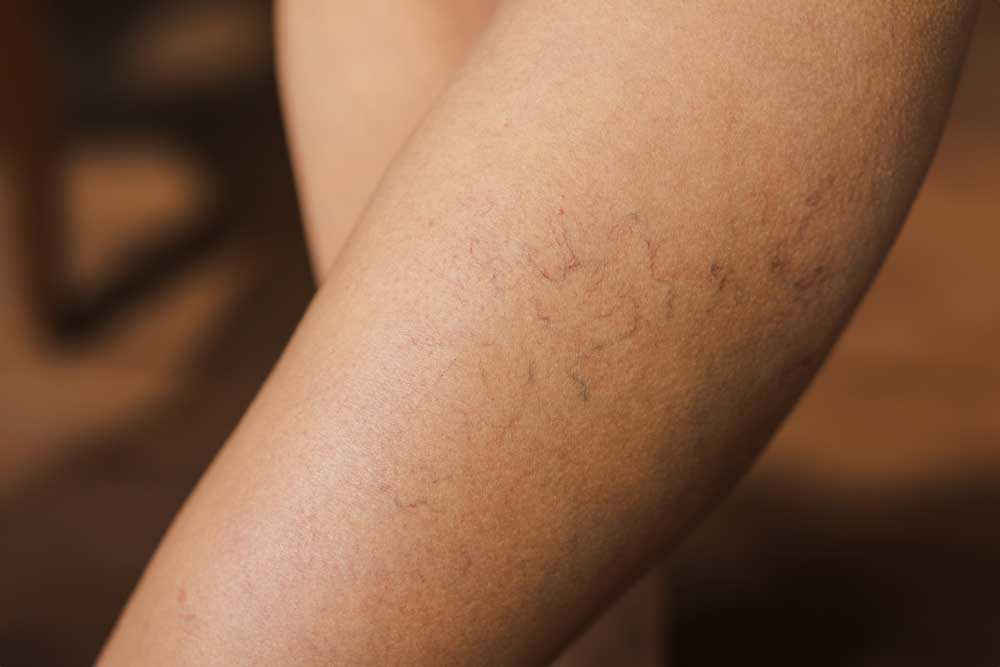Does Birth Control Cause Varicose Veins And Blood Clots?
Birth control changes the body in helpful ways, but the medication can have a negative side for some patients. Studies show that birth control does not directly cause blood clots to form, but it can increase your risk of developing one. When it comes to birth control and varicose veins, the medication encourages their development due to its ingredients.
Can Birth Control Cause Varicose Veins?
If you develop varicose veins, it’s most likely due to a family history, occupational risks like standing or sitting for prolonged periods, or hormonal and physical changes associated with pregnancy. However, birth control and varicose veins are linked because of the hormones progesterone and estrogen, the same hormones that increase during pregnancy. These hormones can cause varicose veins to develop during pregnancy; as birth control essentially “tricks” the female body into thinking it’s pregnant, birth control with these same hormones can affect the body in these same ways. Pregnancy hormones cause blood flow to slow down in preparation for giving birth; this helps prevent excessive bleeding during delivery. This is why pregnant women are more prone to developing varicose veins, even during early pregnancy. The same is true for women who use hormonal birth control.
Can Birth Control Cause Blood Clots?
Research has determined that birth control will not make blood clots form; however, most types of pill-based birth control can boost your chances of developing a blood clot. How does this happen? The same hormones that slow the flow of blood, increasing the risk of varicose veins, also increase your body’s clotting factors. Again, this is to prepare the body for giving birth and to prevent excessive bleeding. For this reason, women who are pregnant or on hormonal birth control are at an increased risk of developing blood clots; if you have varicose veins, your blood clot risk also goes up.
Special care should be taken if you or a close family member have a history of SVT (superficial vein thrombosis), DVT (deep vein thrombosis), or PE (pulmonary embolism). This history may indicate the presence of an inherited or acquired coagulopathy, a condition that increases your risks of developing a blood clot. Blood tests are available to detect many of the more common forms of coagulopathy. If testing reveals you have certain coagulopathies, hormonal birth control should be avoided due to the increased risk of blood clot formation.
How To Reduce Your Risk Of Varicose Veins And Blood Clots
There are a number of steps you can take to prevent varicose veins, SVT, DVT, and PE. Elevate your legs when you rest and wear compression hose to prevent varicose veins from developing. Exercise regularly and maintain a healthy weight. Don’t wear high heels for extended amounts of time, and be sure to get a vein screening, especially if you have a family history of venous disease.
Remember to discuss any personal or family history of clotting with your physician prior to beginning any hormonal based birth control. If there is a personal or close family history of clotting problems, genetic testing would be wise before taking birth control.
Schedule An Appointment At Vein Specialists Of The South In Central Georgia
Whether you’re on birth control or pregnant, if you’re concerned with how hormones could be affecting your circulation, schedule an appointment with Vein Specialists of the South in Central Georgia. We have two convenient locations in Middle Georgia: Downtown Macon and Warner Robins, near Robins Air Force Base. Our team is dedicated to the diagnoses and treatment of venous disease exclusively. We’re the experts and have been providing patients in Middle Georgia with the highest quality care for over 20 years. Contact us for a consultation today or ask us about one of our many vein screening events.










